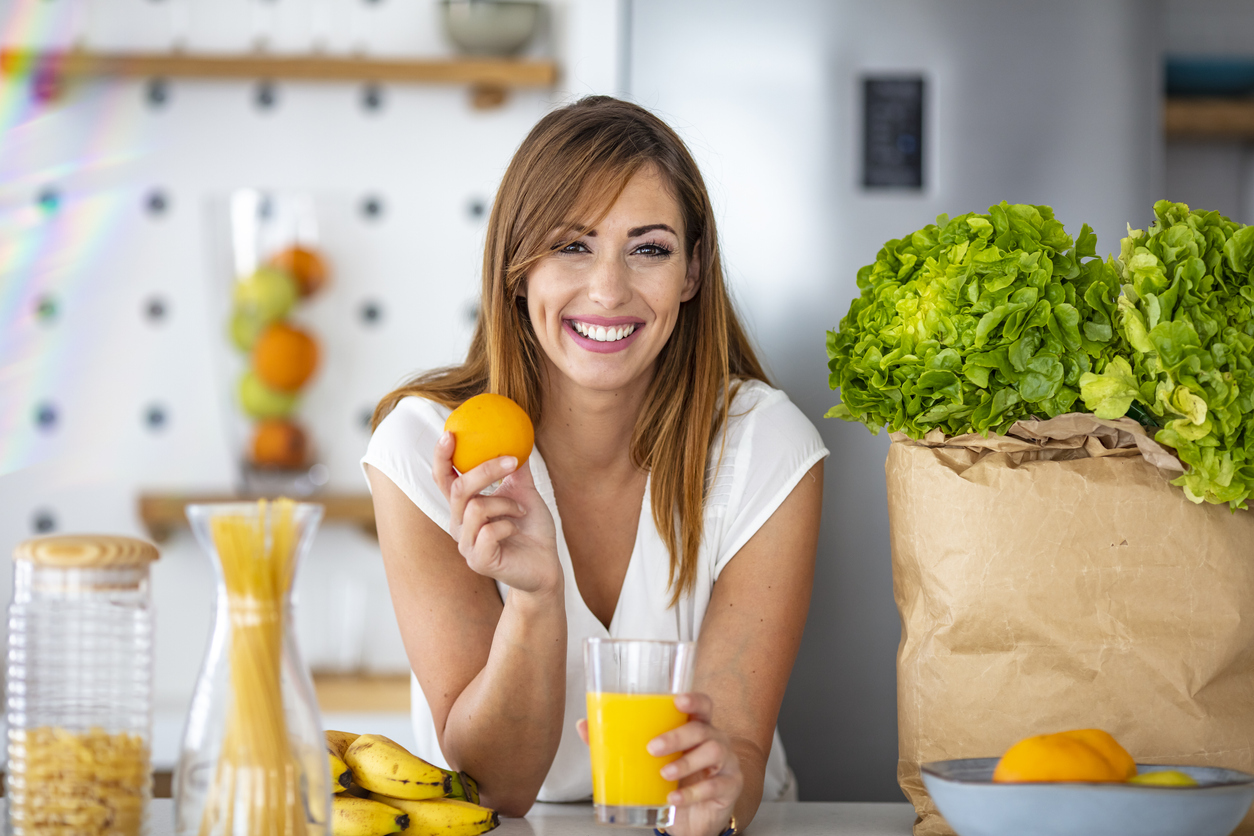This post may contain affiliate links, which provide a small commission to us when you purchase, at no additional cost to you. Thank you for helping to support our efforts in providing you the best, most up-to-date information for GloWell.
Don’t wait until you’re pregnant to start worrying about the food that goes into your body. Food and lifestyle factors can have an impact on your ability to conceive. Have you ever heard of a pre-conception diet? If you’re planning on having a baby, what you put on your fork can make a difference.
Luckily, you don’t have to wonder what the best foods are for pre-conception or pregnancy. You’ve got plenty of research to guide you healthily along the way.
Folate-rich Foods
You may have heard that folate (vitamin B9) is important for a healthy pregnancy. Research has shown that a deficiency in folate is linked to neural tube defects in pregnancy. But what you may not know is that folate (or its synthetic folic acid form) can also support fertility.
A study of 232 women showed that a higher intake of folate was associated with higher rates of implantation, pregnancy, and live birth, making it a crucial nutrient for those pregnant and those trying to be.
To get plenty of vitamin B9 in your diet, be sure to reach for these folate-rich foods:
- Dark green leafy vegetables (turnip greens, spinach, romaine lettuce, asparagus, Brussels sprouts, broccoli)
- Beans
- Peanuts
- Sunflower seeds
- Fresh fruits, fruit juices
- Whole grains
- Liver
- Seafood
- Eggs
Antioxidant-rich Foods
Your cells create reactive oxygen species (ROS), highly reactive molecules that can damage cell structures as a result of normal cellular energy use. Antioxidants work in the body to balance this process, but oxidative stress occurs when ROS overpowers your body’s antioxidant levels.
Oxidative stress has been linked to numerous diseases, including cancer, neurological disorders, hypertension, diabetes, chronic obstructive pulmonary disease, asthma, and more.
According to The American Society for Reproductive Medicine, there is evidence that oxidative stress plays a fundamental role in the occurrence of both male and female subfertility—conception that is taking longer than average.
In one study of young adult men (aged 21-35), eating 75 grams of antioxidant-rich walnuts improved sperm quality.
Antioxidant-rich foods can help keep oxidative stress at bay. The USDA tested over 100 foods and found the following to be the richest in antioxidants:
- small red beans
- wild blueberries
- red kidney beans
- pinto beans
- cultivated blueberries
- cranberries
- artichokes
- blackberries
- prunes
- raspberries
- strawberries
- apples
- pecans
- sweet cherries
- black plums
- russet potatoes
- black beans
- plums
- dark leafy greens
Foods Rich in Omega-3s
Researchers from the Harvard T.H. Chan School of Public Health and Harvard Medical School published a review of past studies that examined the impact of diet on fertility. They found that long-chain omega-3 fatty acids appear to improve female fertility.
Females aren’t the only ones to benefit from a diet rich in omega-3s. In a study published in The Journal of Clinical Endocrinology & Metabolism, couples eating more seafood became pregnant sooner than those who rarely eat seafood.
A 2018 study concluded that eating more fish was associated with a higher probability of live birth following infertility treatment.
Dietary sources of omega-3 fatty acids include:
- Fish and other seafood (especially cold-water fatty fish, such as salmon, mackerel, tuna, herring, and sardines)
- Nuts and seeds (such as flaxseed, chia seeds, and walnuts)
Foods to Avoid if You’re Pregnant or Trying to Get Pregnant
Just like some foods have shown the ability to support healthy pregnancy and fertility, researchers have found others to work against you. Here are three foods to avoid if you’re trying to conceive or are pregnant.
Alcohol
You already know that alcohol consumption while pregnant is risky. According to the Centers for Disease Control (CDC), alcohol use during pregnancy can cause miscarriage, stillbirth, and a range of lifelong physical, behavioral, and intellectual disabilities.
What you may not know, however, is that alcohol use can also cause issues when you’re trying to conceive, particularly for heavy drinkers.
A Danish study found that women who consumed 1–5 drinks per week and those who consumed more than ten drinks per week had a decreased chance of achieving pregnancy. Another study of 7,393 Swedish women also found a relationship between the amount of alcohol consumed to the risk of seeking treatment for infertility, with high alcohol consumers being more likely to seek treatment than moderate drinkers.
Sugary Drinks
If you’re cutting out alcohol while pregnant or trying to conceive, don’t use sugary drinks like sodas or energy drinks as a replacement. Researchers have found links between intake of sugar-sweetened beverages with reduced fecundability. (Fecundability is the probability of conceiving within one menstrual cycle and is usually measured by a longer time to pregnancy).
Interestingly enough, sugary beverage consumption wasn’t only a risk for females; males were also at risk for reduced fecundability from drinking sodas and energy drinks.
Diet soda and fruit juice didn’t show the same results, but give your body a break and nourish it with the one beverage it absolutely needs for conception, pregnancy, and overall good health: plenty of water.
Fast Food
It may be convenient (and sometimes delightfully tasty), but fast food has no place in a pre-conception diet.
A study of 5,628 women found that those who consumed high amounts of fast food and little fruit took longer to become pregnant than those with healthier diets.
If you’re craving that burger, taco, or pizza you would normally grab from a fast food joint, try making a healthier version at home instead. Pile on plenty of veggies and eat a serving of fruit on the side, so you can get the same satisfaction you get from the drive-thru, minus the increased infertility risk.
The Best Foods for a Pre-Conception and Pregnancy Diet
The foods that researchers recommend for a pre-conception diet to help increase your chances of pregnancy are the same ones that will nourish your body and baby once you do become pregnant. A healthy diet with seafood, whole grains, fruits, and vegetables is related to better fertility in women, better semen quality in men, and better outcomes for babies, too.











Join the GloWell Community on Social!
Don't risk missing a single thing. Follow us on social and become part of the GloWell community.